Are you ready to embark on an exciting journey of creativity and collaboration? In this article, we will explore how to craft the perfect letter for initiating a collaborative project with a museum, ensuring your ideas resonate with your audience. Whether you're an artist, educator, or community leader, a well-structured letter can open doors to meaningful partnerships. Join us as we dive into essential tips and templates that will help you make a lasting impression!
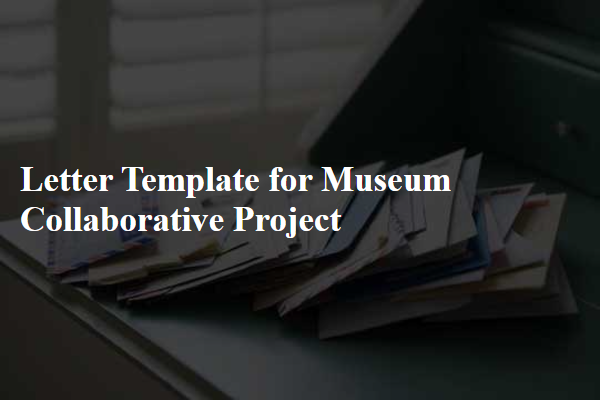
Clear objectives and goals
A museum collaborative project aims to create dynamic educational programs that enhance community engagement and appreciation of history, art, and culture. Clear objectives include developing interactive exhibits that utilize advanced technology, fostering partnerships with local schools to incorporate museum resources into their curricula, and organizing outreach events to increase participation from underrepresented communities. Goals focus on elevating visitor numbers by 30% within two years, securing funding through grants and sponsorships amounting to $150,000, and establishing a sustainable volunteer program that recruits at least 50 active community members annually. By leveraging shared expertise and resources, this project aspires to foster a vibrant cultural exchange and deepen the impact of the museum's mission within the community.
Key stakeholders and roles
Identifying key stakeholders in a museum collaborative project involves recognizing individuals and organizations that contribute to various aspects of the initiative. These stakeholders may include museum curators responsible for artifact selection and exhibition design, educators engaged in developing educational programs and outreach activities, local artists contributing creative input for exhibitions, community organizations promoting inclusivity, and sponsors providing financial support. Additionally, volunteers play a crucial role in assisting with events, while visitors offer feedback shaping future exhibitions. Each stakeholder's active participation enriches the project's success and cultivates a dynamic relationship between the museum and the community.
Detailed project timeline
A detailed project timeline for a museum collaborative project includes key phases and milestones. Initial phase covers project inception, determining objectives, and forming partnerships with organizations like local cultural institutions by February 2024. The research phase conducts a comprehensive analysis of existing collections, focusing on artifacts from specific historical periods, scheduled from March to May 2024. Development of exhibition design and educational programming follows in June and July 2024, including collaborative workshops with community members. The implementation phase, where installation of exhibits occurs, is planned for August 2024. Marketing efforts, incorporating social media campaigns and press releases, commence in September 2024, leading up to the grand opening scheduled for October 2024, which coincides with International Museum Day. Post-launch evaluations and feedback collection will occur throughout November 2024 to assess visitor experience and engagement metrics.
Funding and budget plan
Collaborative projects between museums often require a comprehensive funding and budget plan to ensure success. Various sources of funding can include government grants, private donations, corporate sponsorships, and crowdfunding initiatives. A detailed budget plan should outline specific expenses, including staffing costs (wages for curators and educators), operational expenses (utilities, supplies, maintenance), and program costs (exhibits, workshops, promotional materials). Grant opportunities from organizations such as the National Endowment for the Humanities (NEH) or the Institute of Museum and Library Services (IMLS) can provide substantial funding. Additionally, community partnerships can leverage resources, enhancing the project's outreach and impact while engaging local stakeholders. Building a transparent financial framework is crucial to foster trust and commitment among collaborators and sponsors. An effective financial strategy can drive engagement, foster exploration, and promote educational initiatives that benefit the broader community.
Communication strategy and contact information
A well-defined communication strategy for a museum collaborative project should focus on engaging diverse stakeholders, including educators, local communities, and cultural organizations. Clear objectives should be established, such as promoting awareness of the project's goals, enhancing visitor experiences, and fostering partnerships. Designated contact points for inquiries or collaboration, including position titles like Project Coordinator, should be provided along with communication channels such as email, phone numbers, and social media handles. Regular updates through newsletters, social media posts, and community meetings can ensure ongoing engagement. Utilizing platforms like Zoom for virtual discussions and workshops can facilitate broader participation. Additionally, the use of localized art exhibitions and educational programs can spark interest, encouraging community involvement and investment in the project.
Letter Template For Museum Collaborative Project Samples
Letter template of partnership proposal for museum collaborative project
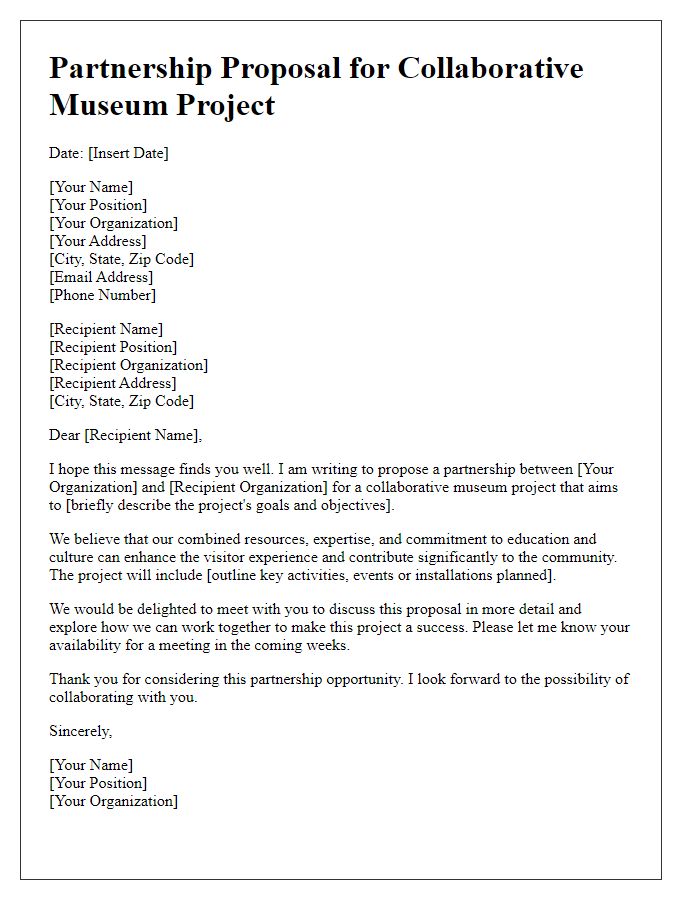
Letter template of volunteer recruitment for museum collaborative project
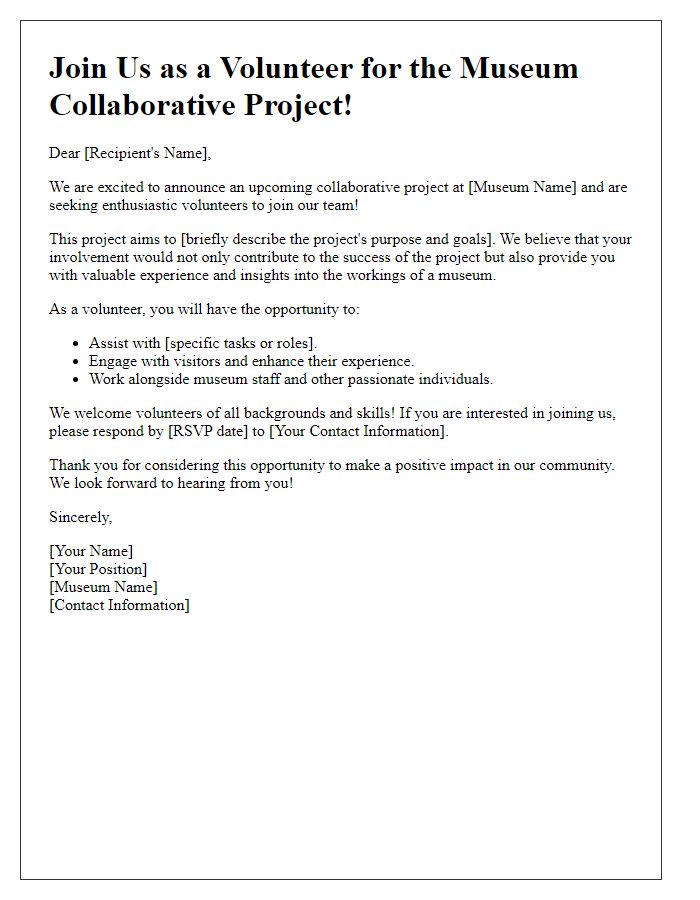
Letter template of exhibition invitation for museum collaborative project
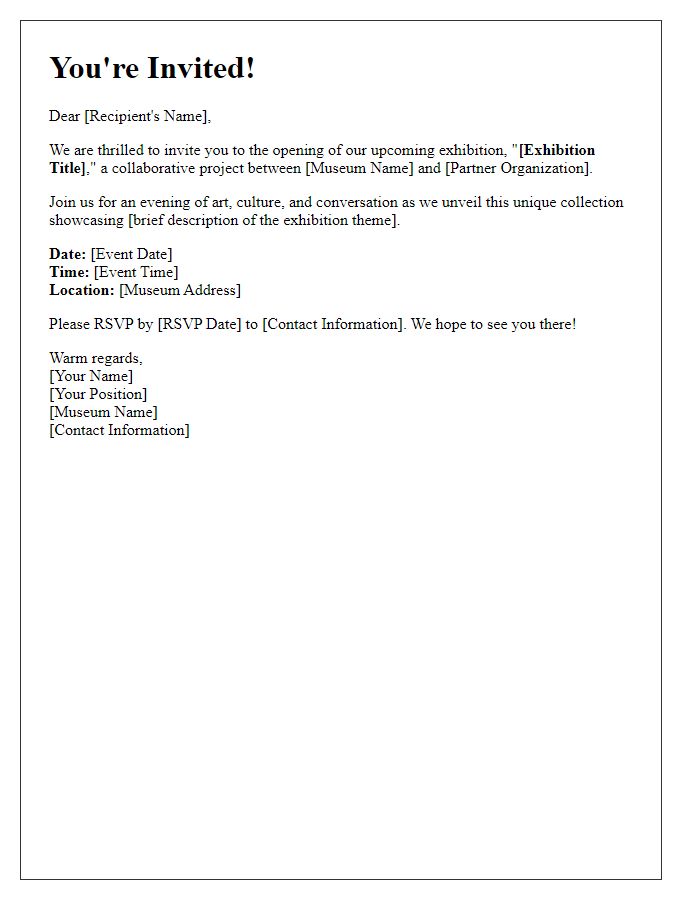

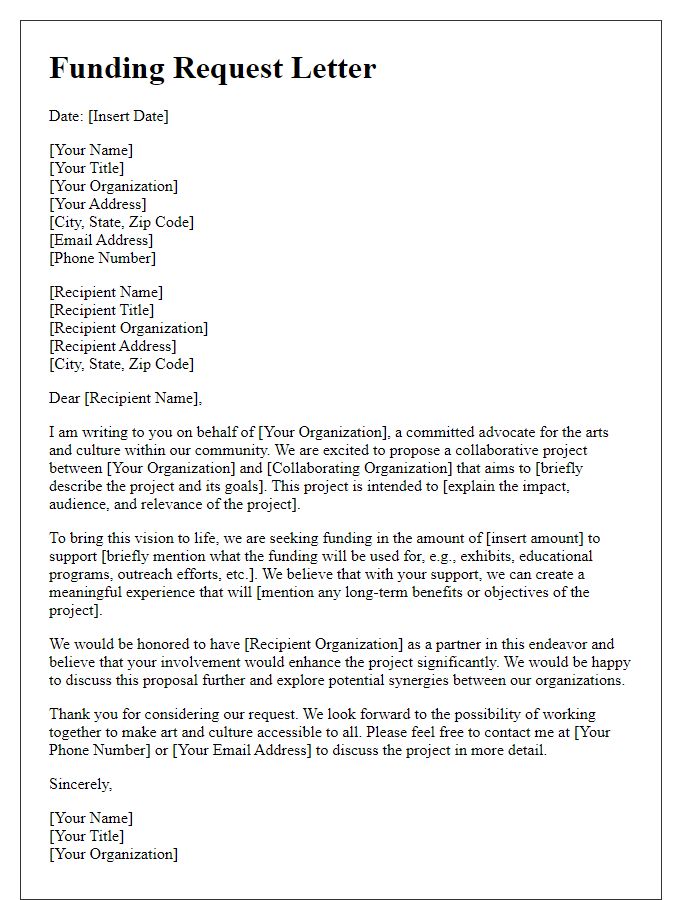
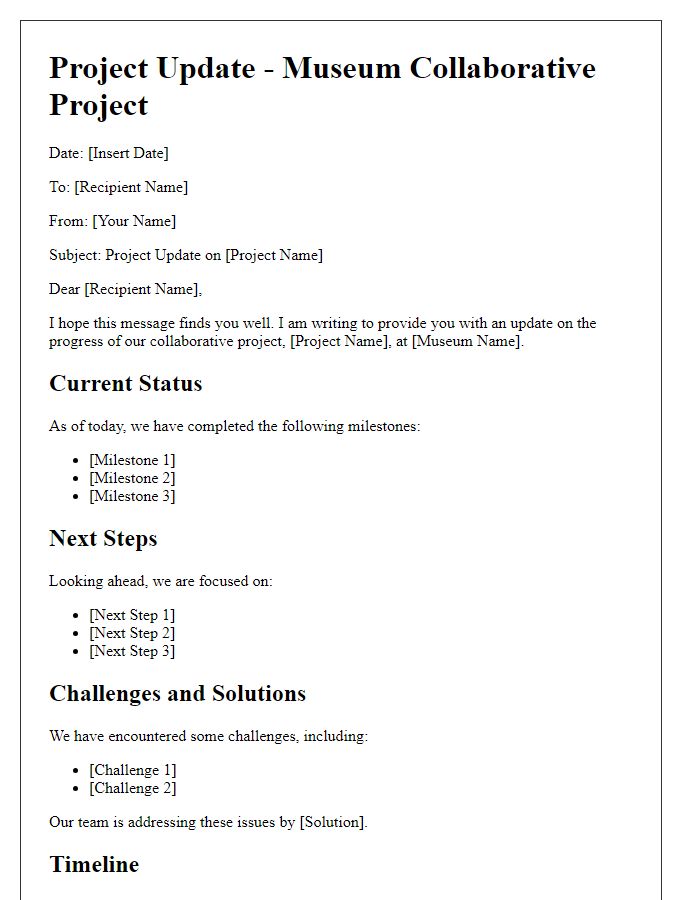
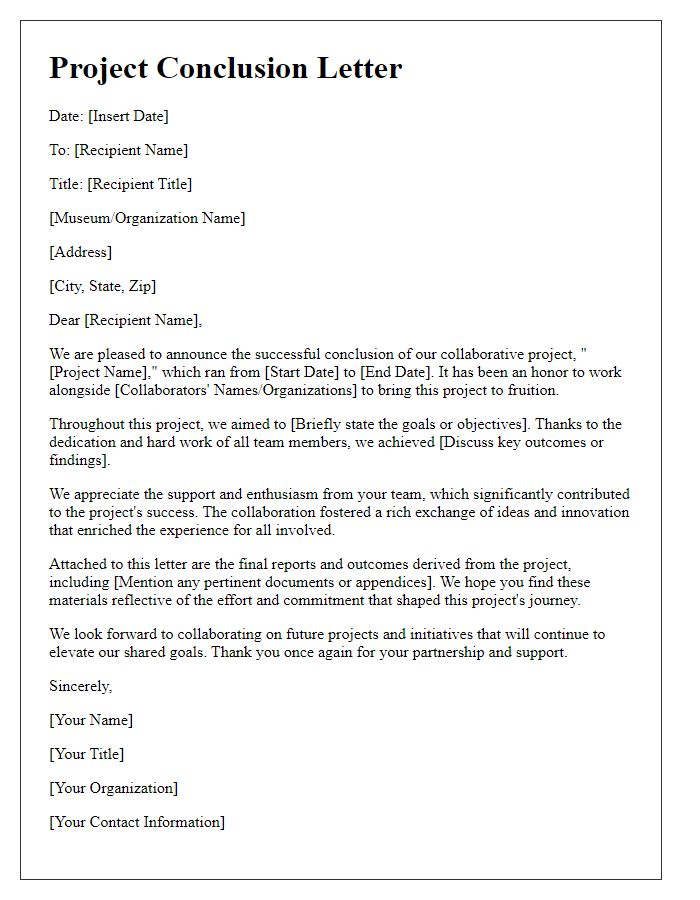
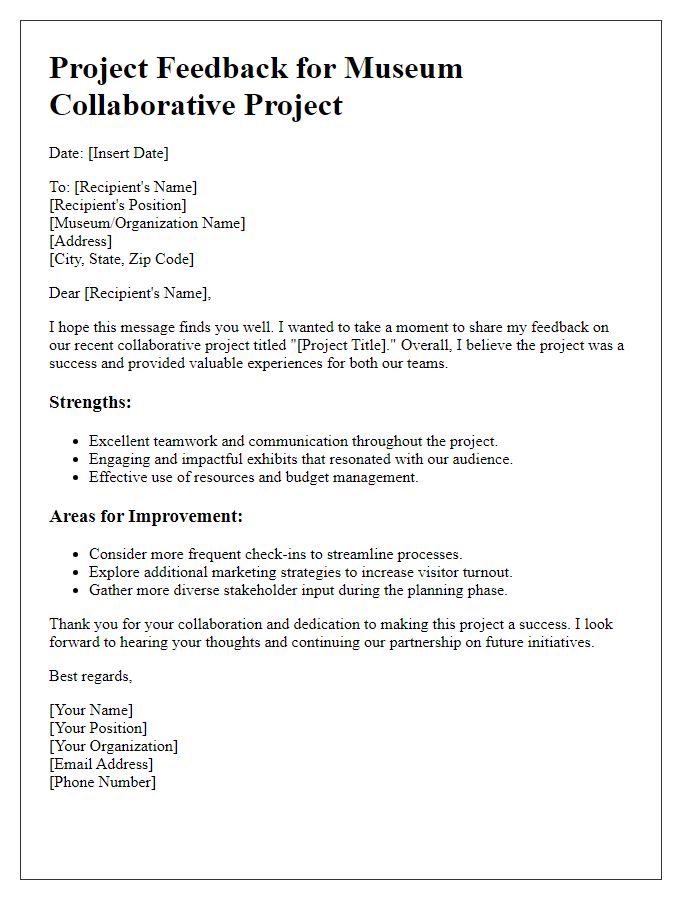
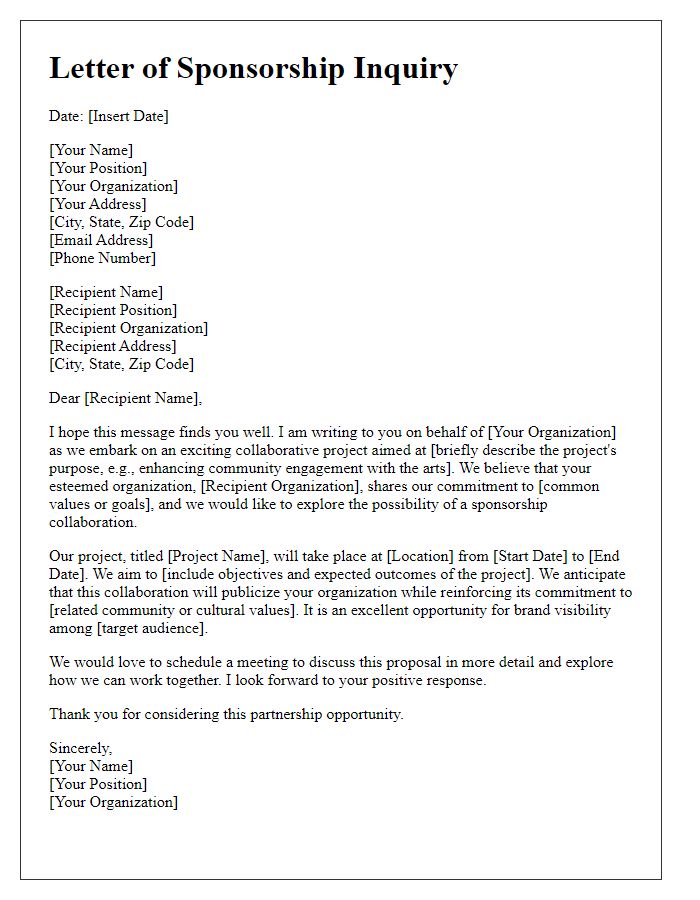
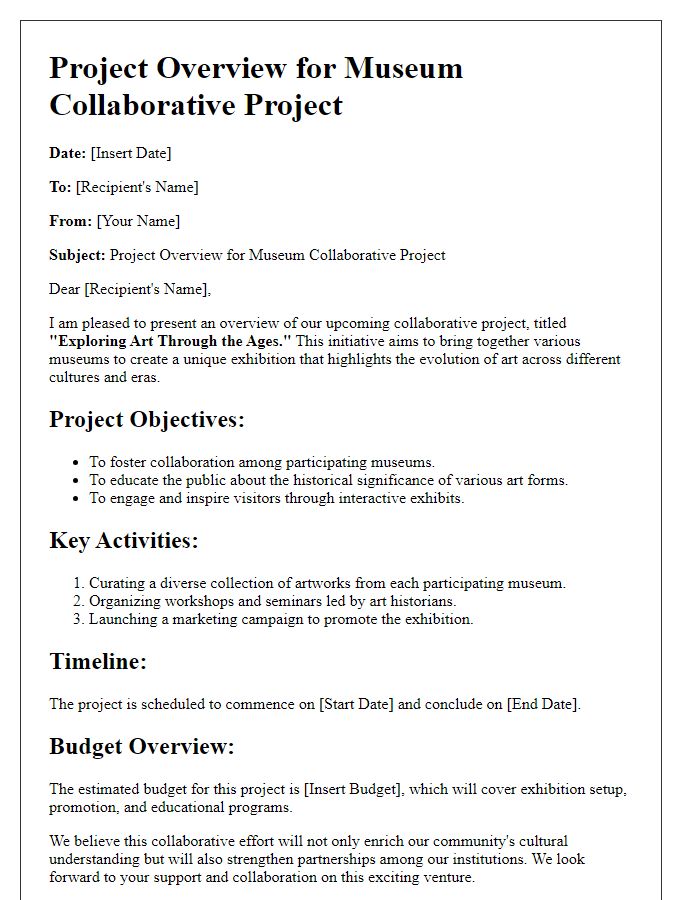
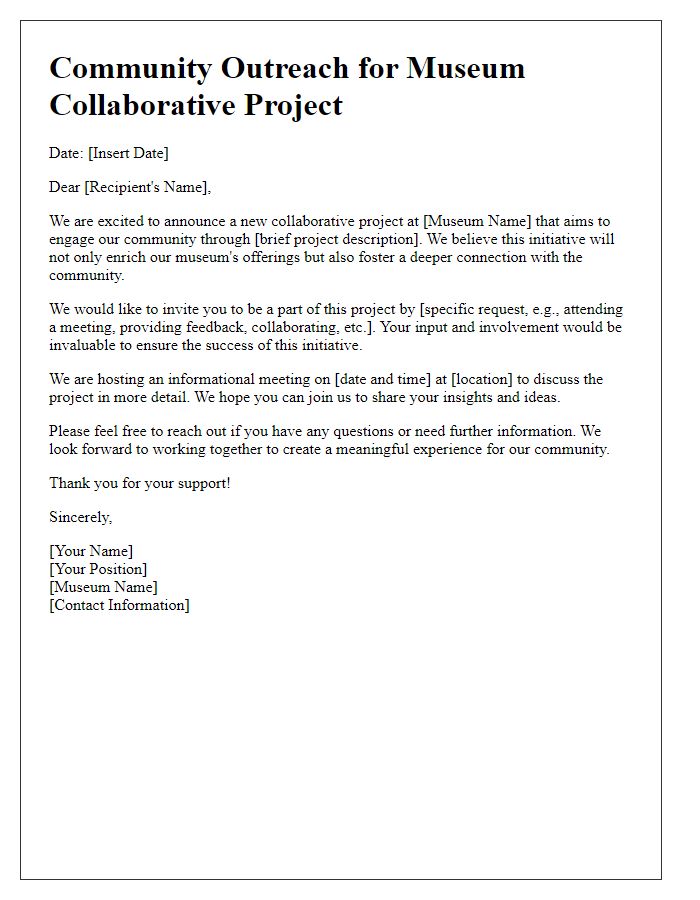

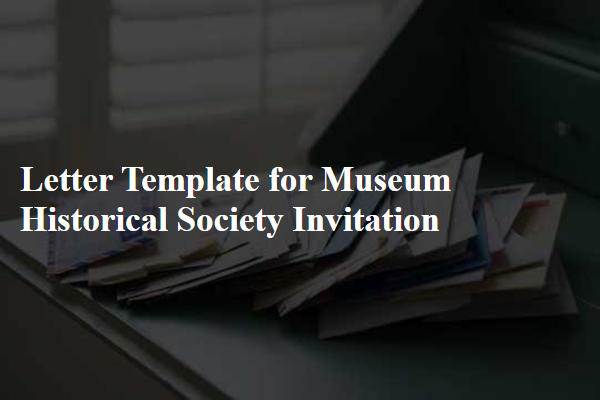
Comments